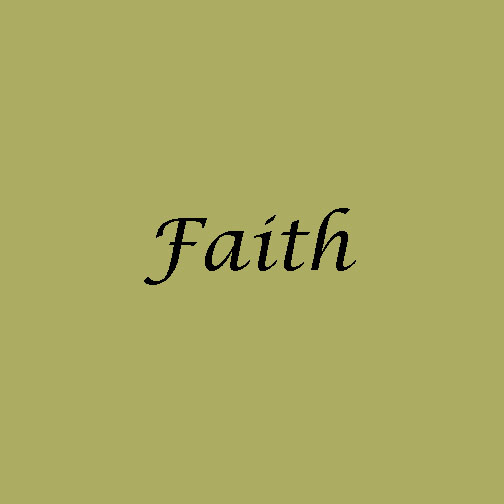|
April 6, 2021 Without A Church March 30, 2021 Bad Memes March 1, 2021 Hard Lessons February 26, 2021 Random Thoughts IV January 17, 2021 Bad Idioms January 14, 2021 Gone for a month December 19, 2020 Mystery Blog December 13, 2020 Random Thoughts III |
 |
SITE UNDER RECONSTRUCTION LATEST NEWS February 26, 2021 November 25, 2020 |
|||
    |
|||||
    |
|||||
April 6, 2021
|
In my last blog, I said I was going to finally explain why I'm now a Christian without a church. I've gotten flak over this many times in the past, and frankly, I don't care. I know what I know, I've decided what I've decided. I now understand that the church was ever intended to be what it is now, and here's my explanation. (And, yes, there's a brief political reference. Be warned.) I've said in the past how I was never given straight answers growing up. I'd ask questions, and I'd get non-answers. For example: Me: "What language did Jesus speak?" Not the answer I was looking for, and very disappointing. At that age, I didn't know how to get across that I was looking for the common tongue in the region at the time. (I now know it was Latin. Greek was the scribal language, Aramaic was dead in the region, and Latin-speakers had occupied the area for two centuries.) Most of the time, I got one of two things. First, a gross generality, like above, or second, a list of things not to do. The things I was told to do were things like go to Church, homework, "follow through" when kicking a soccer ball, but never how to do them. The result was the only thing I had: Guessing. Sometimes educated, sometimes wild. Sometimes, the meaning was obvious. Sometimes, I screwed the pooch. This is probably the biggest part of why I had so many problems growing up. But that's something for another time. When it came to Church, and everything associated with it. I couldn't get a straight answer from anyone. Some of these cases are addressed in my Faith page. My pastor addressing the Apocrypha the way he did was, again, frustrating. It was amplified when I found out about the later additions. And when I started looking into the history of the different translations, that was what finally convinced me that something was seriously wrong. Years later, I looked into Sola Scriptura. As it turns out, Luther's idea of "Scripture only" doesn't exclude history, Tradition, or even the Ecumenical Councils. To do so is entirely a Puritan concept, and a violation of the ancient premises of Christianity. As I learned in 2004, there are two cultural forms of communication: high-context and low-context. Modern America, and most Fundamentalist churches, are high-context, meaning that most of what is intended is stated in no uncertain terms. If it's not there, the assumption is that it wasn't intended. When someone says, "Pictures or it didn't happen", that's high-context, and is a great example of why it doesn't work: It takes time to get the camera ready, and the photo may not be possible. Low-context, on the other hand, means that what is said only reminds people of everything involved with the statement without actually stating them. This was the common way of communicating in ancient times, including Isreal, and is where Tradition comes from. So, to say that Scripture is all you need is to do nothing more than ignore context the low-context communicators didn't write down. One of the United States' most influential settlement groups was the Puritans, who were strict about Sola Scriptura. Most of the Founding Fathers, however, were not Puritans and used a low-context method of writing the Constitution. Many of today's Fundamentalists don't understand this and take a black and white approach to any document they come across, the so-called "bedrock view" that has drawn Fundamentalists to the Republican Party. Is it any wonder why we have such conflict, today? So, I looked into the Roman Catholic and Orthodox Churches. I couldn't get into the Roman Catholic Church because a Council of Cardinals declared the Pope infallible. Who's to say the men on the council weren't infallible? There was no good answer. Also, the idea of confession to a priest had one major flaw. If you don't confess to the person you sinned against, you continue to lie. The Orthodox Church used priestly confession as a prelude to confession to the person you sinned against, which makes a lot more sense. But it was the canons of the First Ecumenical Council that chased me away. I actually looked into the Council because it included the trial of Arias, who was declared a heretic and executed. The twenty canons passed were because of him, but when I read through them, every one of them violated Scripture! One of these was the concept of the Trinity--the very opposite of what Arias argued! Yes, Arias was executed for violating a Church doctrine that hadn't even been named, yet. That was it. I was already a student of Christian history, and that included Biblical history. And there were too many Bibles with too many translations and too many interpretations. As I discovered, the father of all but one modern translation is the Masoretic Text, a seventh-century compilation of six translations developed by the Masoretes of Mesopotamia. But what finally chased me away was that five of the six translations used in compiling the Masoretic Text, such as the Hexapla, are known to be inaccurate. Thus, almost every Bible translation in existence today is inaccurate, or even wrong! (The really sad part is that this is often confused with the Masoric Text, a lost Hebrew text used from the Maccabeans to soon after the Crucifixion, and those who make this mistake accept current Bibles as accurate.) That was it. I never went back to Church. I still consider myself a Christian, but the search for truth goes on. What was the right way to interpret Scripture? We may not know in my lifetime, but one thing is for certain: The arguments will continue. While the other translations can't possibly be accurate, the Orthodox Bible is taken from a translation of the Septuagint, the first translation of Scripture into a foreign language. Also called the LXXII, it was a translation of the Hebrew Canon by 72 people who compared their independent translations and found they were in agreement. We have fragments of the LXXII, and they are in complete disagreement with modern Bibles. Verses have been added or lost, the endings of Daniel and Jeremiah have vanished, and some verses are completely different. It is proof that the Masoretic Text was erroneous. So, my Bible is the Orthodox Bible, even though I won't attend Church any more. It's clearly the most accurate, but the American version was adopted by two men who were raised Protestant and let it influence their view of Orthodox doctrine. Some American priests and Bishops have even been told by Archbishops, Metropolitans, and even Patriarchs, that the American doctrine is wrong, to no avail. So, where does that leave someone like me? Answer: Limbo. And though I have had experiences in the past that tell me there is some form of supreme being, such as the fact that I should have died on five separate occasions. (One of them was really stupid, but in my defense, I was five. You know the tweezers from the game, Operation? I thought it was supposed to be plugged in. Another time, I was hit by a speeding car, jumped up, waved, and kept going.) I've learned that God speaks to us individually in our hearts, not in everybody's ear at the same time. And, most importantly, I've learned some of what Christianity was before the Councils, and that it doesn't agree with what is taught today. I am a Christian without a church. But if you're wondering, I don't believe that the Church was ever intended to be a building. Before Rome, they went to each others' homes to break bread and remember Jesus. There was no organized worship, liturgy, or planning. Everything came from the heart, not someone else's hand. And if you're wondering about "Faith alone", that's refuted by the Epistle of James, Chapter 2. Who knows what I'll write about in my next blog? Until next time . . . |
You are visitor number
since July 8, 2020
